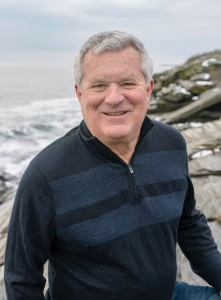
A couple of big moves to catch you up on in the world of newspaper punditry.
First, David Brooks is leaving The New York Times, where he’s been a center-right columnist for the past 22 years. He’ll be taking a job as a staff writer and podcaster for The Atlantic, where he’s already a contributor. He’s also joining Yale University as a Presidential Senior Fellow at the Jackson School of Global Affairs. Presumably he’ll continue as a commentator for the “PBS NewsHour.” Brooks wrote a rather downbeat farewell column today, saying in part:
We have become a sadder, meaner and more pessimistic country. One recent historical study of American newspapers finds that public discourse is more negative now than at any time since the 1850s. Large majorities say our country is in decline, that experts are not to be trusted, that elites don’t care about regular people. Only 13 percent of young adults believe America is heading in the right direction. Sixty-nine percent of Americans say they do not believe in the American dream.

Second, and closer to home, Scot Lehigh is retiring from The Boston Globe, where he’s worked for the past 36 years. Lehigh has been a columnist for the opinion pages for most of that time, and had been on leave while finishing his second novel. Before that, Lehigh was a political reporter for The Boston Phoenix (we did not intersect) and was a finalist for a 1989 Pulitzer Prize for his coverage of Michael Dukakis’ presidential campaign. Lehigh, too, has a farewell column up today, and he says (sub. req.):
[O]nce you reach your mid-60s, you become acutely aware that time isn’t limitless and if you want to try different things, you have to saddle up and sally forth. And so I’m sallying. I had just enough luck with my first novel, “Just East of Nowhere,” a coming-of-age story set in Maine, that I’m attempting a more ambitious novel.
Mid-60s? Scot is a mere child.
Lehigh’s moderate-liberal voice will be missed, and I wish him the best on a long and productive retirement. Brooks isn’t retiring, and, since I’m already an Atlantic subscriber, I’ll continue to be a reader.


 This year’s Muzzle winners include Plymouth’s town manager, for attempting to intimidate and silence the nonprofit Plymouth Independent; the mayor of Burlington, Vermont, for muzzling the police chief and playing favorites with the press; and the mayor of Quincy, Massachusetts, for planning to install two religious statues on public property at the city’s new public safety building.
This year’s Muzzle winners include Plymouth’s town manager, for attempting to intimidate and silence the nonprofit Plymouth Independent; the mayor of Burlington, Vermont, for muzzling the police chief and playing favorites with the press; and the mayor of Quincy, Massachusetts, for planning to install two religious statues on public property at the city’s new public safety building.





